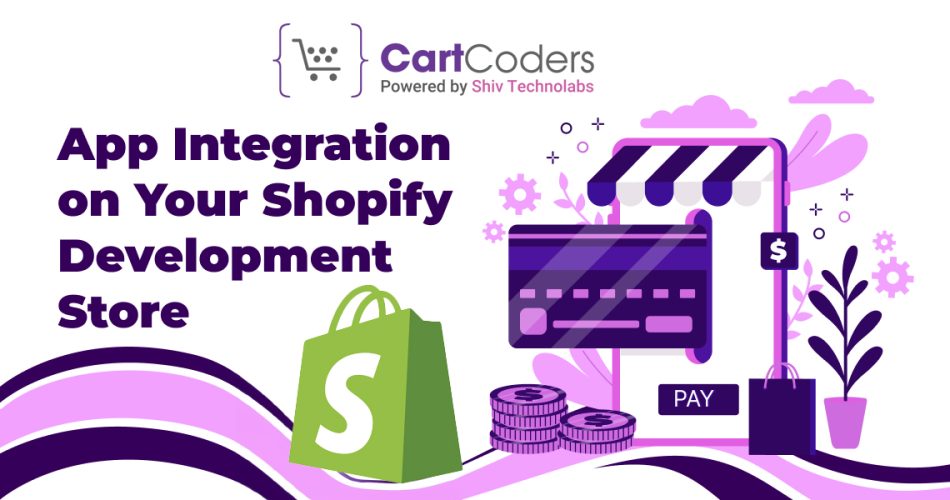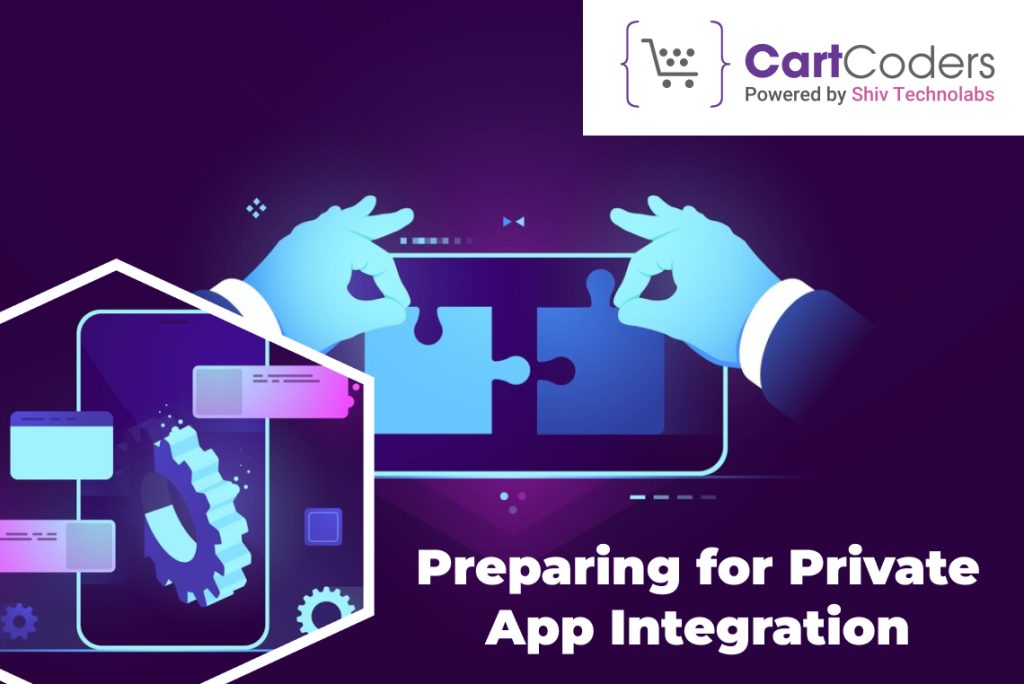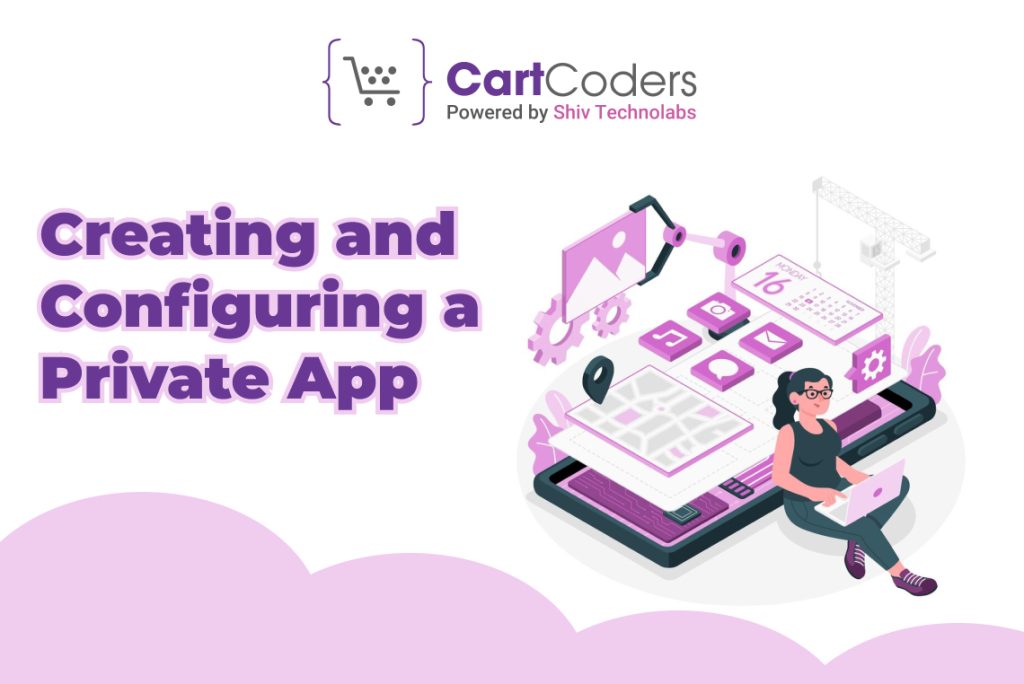Custom Engagement Solutions
Unlock tailored solutions with a free, no-obligation strategy session.
Expert Developers & Engineers on Demand
Scale Your Team with Skilled IT Professionals
Expert Guidance for Digital Transformation

Making the most of your Shopify development store means understanding how private apps can benefit you. These custom applications are designed for specific business needs, offering unique features that public apps might not have. Private apps let your store connect more deeply with third-party services, automate tasks, manage inventory, and improve the user experience. If you want to get the most out of your Shopify store, working with a professional Shopify private app development company can be very helpful. These experts know how to create secure, efficient private apps that fit your unique requirements.
Shopify development stores are special test environments provided by Shopify for partners. They let developers build and test new themes, apps, and customizations before making them live. These stores are safe spaces where developers can experiment without affecting the live store’s performance or user experience. By using a development store, businesses can make sure their customizations and private apps are working correctly before going live.
Setting up a development store is simple, but it’s important to understand the differences between development and live stores. Development stores have certain limitations, like not being able to process orders, but they offer unlimited trial periods, making them great for testing. To set up a development store, you need to register as a Shopify Partner, create a new store through the partner dashboard, and configure basic settings to get ready for app integration.
Using a development store comes with numerous benefits. First, it provides a risk-free environment where developers can test their apps and customizations without worrying about breaking anything on a live store. Second, it allows for extensive testing over an unlimited period, which is essential for ensuring the app’s stability and functionality. Third, development stores enable collaboration among different team members, allowing multiple developers to work on different aspects of the app simultaneously. Lastly, they provide access to Shopify’s vast array of resources and support, making it easier to troubleshoot issues and implement best practices.

Before starting with private app integration, you need to have certain things ready. This includes setting up the right permissions, understanding the necessary API scopes, and having the tools and resources needed for development. Working with a reputable Shopify private app development company can simplify this process by providing expert guidance and support.
Understanding API scopes and permissions is crucial for private app development. API scopes determine what level of access your app will have to the store’s data. Choosing the correct scopes is important to make sure your app can do what it needs to without compromising security. Developers must carefully select these permissions to balance functionality and security, avoiding too many permissions which could lead to potential security issues.
Permissions and API scopes are crucial because they dictate what data and functions your app can access. Over-permissioning can create security risks, while under-permissioning can limit the app’s functionality. It’s essential to thoroughly review the needs of your app and request only the permissions necessary to perform its functions. Regular audits of these permissions can help ensure that your app remains secure and compliant with Shopify’s policies. Additionally, understanding these scopes can aid in troubleshooting issues related to data access and functionality, ensuring a smoother development process.

Creating a private app in Shopify involves using the Shopify admin dashboard to generate API credentials and set up access settings. You start by going to the “Apps” section in the Shopify admin, then selecting “Manage private apps” and clicking on “Create a new private app.” Here, you will enter the app’s name, provide a contact email, and set up the necessary API scopes.
Configuring webhooks and API endpoints is a key step in setting up a private app. Webhooks let your app receive real-time notifications about specific events in the store, like order creation or inventory updates. Setting up webhooks involves specifying the events you want to listen to and providing a URL where Shopify will send the notifications. Testing these webhooks ensures your app responds correctly to the events and processes the data as expected.
When creating a private app, attention to detail is crucial. Start by giving your app a meaningful name and providing a contact email that will be used for notifications and updates. Then, select the required API permissions based on the app’s needs. It’s important to choose only the permissions that are necessary to avoid potential security risks. Once the basic setup is done, you can configure the app settings, such as webhooks and API endpoints, to ensure that your app can communicate effectively with your store. Testing the app in the development store environment will help identify and fix any issues before going live.
Also read : How to Market Your Shopify Public App to Reach a Wider Audience
Connecting your private app to your development store requires using the API credentials to authenticate and make API calls. This integration allows the app to interact with the store’s data, enabling various functions like managing products, processing orders, and handling customer data. Securing the connection involves using HTTPS and proper authentication methods to protect sensitive information.
Using the Shopify API with your private app opens many possibilities for automation and customization. The API provides endpoints for accessing and manipulating store data, allowing developers to create powerful features tailored to specific business needs. Common use cases include syncing inventory with third-party systems, automating order fulfillment processes, and creating custom reports.
Security is paramount when integrating your private app. Start by ensuring all API communications are encrypted using HTTPS. Implement robust authentication mechanisms, such as OAuth, to verify the identity of API requests. Regularly check access logs and watch for any unusual activity. It’s also important to keep your API keys and credentials secure and not hard-code them into your app. By following these security best practices, you can protect your store’s data and maintain the integrity of your app.
Security and compliance are essential when developing private apps. This involves using secure coding practices, regularly updating dependencies, and conducting thorough security audits. Compliance with Shopify’s terms and policies is also necessary to avoid potential issues and make sure the app operates within Shopify’s guidelines.
Improving app performance is crucial for providing a smooth user experience and reducing the load on the store’s resources. This can be done by writing efficient code, using caching strategies, and optimizing database queries. Monitoring the app’s performance and addressing any issues quickly helps keep the app reliable and efficient.
Security and compliance should be ongoing efforts in private app development. Implementing secure coding practices, such as input validation and proper error handling, can prevent common vulnerabilities. Regularly updating libraries and dependencies ensures that your app remains secure against known exploits. Performing regular security audits can help detect and reduce potential risks. Additionally, staying up to date with Shopify’s policies and guidelines ensures that your app remains compliant and avoids any disruptions in service.
Performance optimization is key to a successful private app. Efficient code reduces the load on both the app and the store’s resources, improving overall performance. Techniques such as caching frequently accessed data, minimizing API calls, and optimizing database queries can significantly enhance the app’s speed and responsiveness. Regular performance monitoring helps identify and address bottlenecks, ensuring a smooth and efficient user experience.
Testing your private app involves making sure all functionalities work as intended. This includes unit testing, integration testing, and end-to-end testing to cover all parts of the app’s operations. Using tools and techniques like automated testing frameworks and continuous integration pipelines can simplify the testing process and improve accuracy.
Deploying the private app to a live environment requires careful planning. This includes transferring the app from the development store to the live store, updating API credentials, and conducting post-deployment checks. Monitoring the app’s performance and quickly addressing any issues is important for a smooth transition and keeping users happy.
A thorough testing strategy is crucial for private app development. Unit testing ensures that individual components of the app work correctly. Integration testing verifies that these components interact properly with each other and with the Shopify store. End-to-end testing simulates real-world scenarios to ensure the app performs as expected under various conditions. Using automated testing tools can help streamline this process and ensure consistent results. Regularly updating tests to cover new features and changes in the app helps maintain its reliability over time.
Deploying a private app to a live store should be done with minimal disruption to users. Begin by planning the deployment during off-peak hours to reduce the impact on store operations. Carry out a final round of testing in the live environment to identify any last-minute issues. After deployment, closely monitor the app’s performance and user feedback to quickly address any problems that arise. Having a rollback plan in place can help revert to the previous version if any critical issues are detected, ensuring business continuity.
Unlocking the full potential of your Shopify development store through private app integration can significantly improve your store’s capabilities and streamline your operations. Engaging with a professional Shopify private app development company, such as Cart Coders, can provide the expertise and support needed to create and maintain high-quality private apps. With extensive experience in Shopify private app development services, CartCoders specializes in delivering customized solutions that meet unique business needs. Whether you require complex integrations or specific functionalities, their team of skilled Shopify private app developers can help you achieve your goals, ensuring a smooth and efficient e-commerce experience.
By working with experienced professionals, businesses can take full advantage of the flexibility and power offered by private apps, ultimately leading to improved efficiency, better customer experiences, and increased profitability. If you are looking to enhance your Shopify store with custom functionalities and integrations, consider reaching out to Cart Coders for expert Shopify private app development services.
Projects delivered in 15+ industries.
95% retention rate, building lasting partnerships.
Serving clients across 25+ countries.
60+ pros | 10+ years of experience.